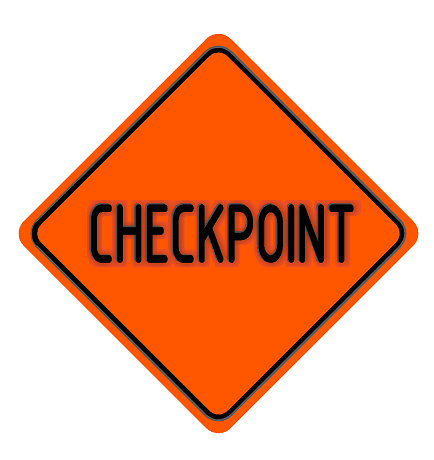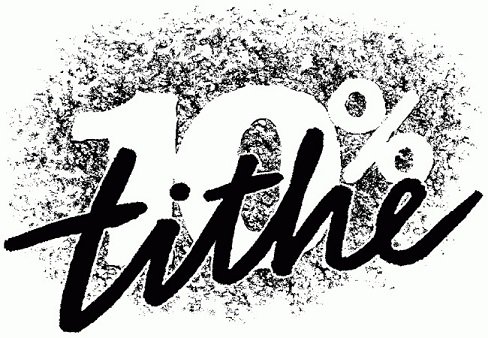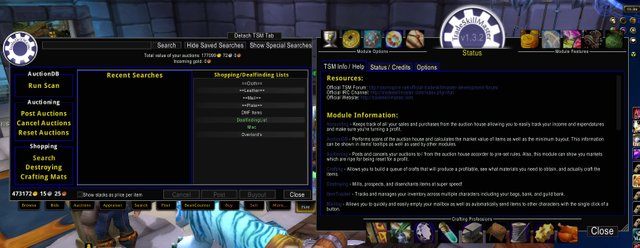Block-Based Gaming

Pretty much all games are real-time or turn-based. Most games are real time. The clock is ticking and if you step away without pausing, the game will continue on without you. In the case of multiplayer competitive team games, pausing is very rarely an option, so starting a game of this sort is a time commitment. This can get gamers into trouble. Someone might want you to step away from the game for a few minutes, but you are compelled to stay. No matter what you do, someone is going to be disappointed.
Turn-based games are much more rare these days. Normally, a turn-based game implies that there is a lot to think about. Each move is a tactical decision. In the beginning, all games were turn-based (unless you count physical sports). Chess, Checkers, Go, Othello, Dungeons and Dragons, Poker, Settlers of Catan, Carcassonne, or literally any board game is a turn based game.
Turn-based games are not as popular as real-time games. The masses love their first-person shooters, RPGs, sandboxes, and action-adventure. However, I think the blockchain can add a new twist to gaming.
Block-Based
Block-Based games will be a hybrid of real-time and turn-based games. Each block on the blockchain is a time unit tick inside the game. This means that you can take all the time you want, right up until a predetermined cutoff block when action resolves and the next "turn" begins. This dynamic gives block-based gaming properties from both the real-time and turn-based models. The game will continue on without you if you leave, but while you're playing you'll often have ample time to make your decisions.
Which blockchains?
Perhaps you're wondering which blockchains will be the best one's to put games on. To me the answer is obvious: the one's producing the most blocks. More blocks on the chain means there are more time ticks one can utilize. Obviously, EOS will be a great candidate with its half second blocks. Steem with three second blocks will also be a good target for certain applications. However, as I've already stated multiple times, only being able to post text info to Steem every 20 seconds is going to be a obvious setback. That rule needs to be modified.

Role Playing Games
RPGs are the #1 most popular gaming genre. However, not all RPGs are real-time. The Final Fantasy series has made a killing designing turn-based RPGs. I like Final Fantasy, but I believe there is massive room for improvement when it comes to turn-based RPGs. This is why I want to create my own directly on chain.
Block-Based gaming will have many advantages and disadvantages. The most obvious advantage is that they are directly connected to a blockchain. This means that items acquired in a block-based RPG would be provably rare and owned directly. It means there is no central authority that's constantly leeching value from the game. Skilled players would literally get paid to play. If you thought Steem Monsters was cool, just wait until you can find a DragonSlayer sword in a block-based RPG and sell it on a decentralized auction house for $20. This is the future of gaming, and everyone is going to want a piece once the space is monetized in this fashion. Power to the player! We will own the games we play.
The biggest disadvantage to block-based gaming will be speed and scalability. Let's say the entire game was on the blockchain. This means that every time one player wants to interact with another player, every item and character would have to be verified as legitimate. This means that you'd have to go back as far back as that character/item was created, and verify that every action they claimed to do over their entire life was legitimate. This is not viable long term, which is one reason why all items and characters in my game would have a lifespan. I was a big fan of Hardcore mode in Diablo 2. If you die, you're dead forever. This will make items and characters exponentially more valuable and rare. It will also mitigate the negative effects of bots farming the game. Bots are dumb, and they will die, forever.

Checkpoints and Witnesses
We could also create separate witnesses and/or checkpoints for the game. A witness would be a trusted community member running a server that verified legitimacy.
Say you wanted to buy an item from someone for 30 SBD. You have to make sure the item is legit. Your client scans the blockchain and sees the item was created by slaying the Bogmonster in the Wetlands at position (250, 1024) on block 12,980,120. Your client runs the Scrypt hashing algorithm on Steem block 12,980,120 and verifies that this indeed is a valid weapon. However, what if the party that slayed the Bogmonster in the Wetlands was using hacked items or hacked levels or hacked damage or hacked their position on the map? Now you have to verify the party. Every fight that party has been in since it was created needs to be verified... wow what a time suck of inefficiency.
An RPG witness would already have this information, so instead of doing all these calculations yourself you could just send a request to a witness asking, "Hey, is this legit?" And if the witness was trustworthy they'd give you the correct answer. Just to be sure you could even ask more witnesses to give you the answer. The witnesses could even charge a little fee to monetize their service (like less than a penny, perhaps 0.001 SBD). If you REALLY wanted to be sure or not pay the witness fee you could run it yourself. Perhaps you would even set up your own witness node to keep the other witnesses honest.
A checkpoint would be a snapshot of the game that has verified all previous actions. Now, instead of having to validate every action from now until the beginning of time, you only have to verify it from now until the last checkpoint. I think that checkpoints will play a very important roll for all blockchains in general, because the current model of storing all information back to the genesis block seems totally unsustainable to me.
Disadvantages of DPOS
Decentralization/trust is lessened when delegated-proof-of-stake is used. The advantage of DPOS is a massive speed and scalability boost. However, what if a super rare item was worth like $1000? If you used a Steem block to create this item then Steem witnesses would have massive financial incentive to hack the game and create bad blocks. The blocks wouldn't be bad for Steem, they would be bad for the game. It might be very difficult to even detect such an indiscretion. Therefore, the game could use another more decentralized blockchain if the stakes were high enough. If you used an Ethereum block to provide randomization it would take longer (15 seconds vs 3) but at the same time the result would be more trustworthy. It's not easy to farm a block on a POW blockchain. If you find a valid block, you're going to post it and get the block rewards. There is literally no wiggle room to try to change that block in order to modify the random number generator of a game that's based on it. It is in this way that POW is much more trustworthy.

The Tithe
A decentralized game must regulate itself. The community owns the game, therefore the community must stop bad actors from exploiting it. A corruption resistant reputation model must be established so the community can verify which users are to be more trusted.
A reward system must be implemented to encourage the community to scour the platform of corruption. Bots must be banned. Hackers must be banned. Any bad actor: banned. Zero tolerance.
The Tithe is my idea to accomplish this. When an account gets banned the person that pointed them out gets rewarded with 10% of the estimated value of that account. Of course, it will often be difficult to fully prove that someone is cheating. There will be many suspects, and there will also be false accusations because there exists a monetary intensive to ban someone. This is where the reputation system comes in. You can't take everyone's word seriously. There has to be a way to drown out the noise. Steemit Virtual Government describes the governance solutions I have in mind. Accounts accused of cheating will have a chance to defend themselves, and low reputation accounts will often be ignored.
Economy
I played over 10,000 hours of World of Warcraft. As embarrassing as it sounds, I am a master at this RPG. Is this a worthless skill to have? Surprisingly, I find myself in a situation where my knowledge of WOW game mechanics makes me well suited to the task of creating block-based games.
I spent a lot of my time in WOW and Diablo 3 being a "goblin". I focused a lot of energy on the economy aspects of the game. I flipped items on the auction house. I used custom mods to help me. Trade Skill Master (TSM) is a surprisingly complex mod that let's you make a lot of gold in WOW. I've made well over $1000 messing around with the WOW economy and another $1000 for the brief period I was playing Diablo 3.
This experience puts me in a unique position to create a superior block-based economy were players own their items rather than a greedy corporation. I'm pretty excited about this prospect. I'm sure for most people who read this it's more of a, "I'll believe it when I see it," situation, but my optimism is high.

Can Steem handle it?
I'm not totally confident of what certain blockchain's claim they can do. Can Steem and EOS really handle 1000 times more transactions than they are currently executing? I doubt it, but the big point I'd like to make here is that we will never know until we try. We developers need to push these blockchains to the limit in order to identify the weaknesses and start making optimizations.
Intellectual Property
I was talking to someone about this yesterday and they asked me, "Aren't you worried that someone will beat you to the punch?" Hellz no! I wish someone would make this game. I'd rather play a video game for money than be the one stuck programming it. The blockchain is a Race To The Bottom. I'm starting at the bottom, so I win. I'm going to work for free and simply hope that the communities I build will pay me for my troubles.
No one understands this new cooperative economy (not even me), but I do know that I'm not supposed to be greedy. So here I am, trying to follow the true golden path to blockchain victory. Wish me luck.
not sure, but I think I read something of the sort re the upcoming hard fork.
Your post was upvoted by the @archdruid gaming curation team in partnership with @curie to support spreading the rewards to great content. Join the Archdruid Gaming Community at https://discord.gg/nAUkxws. Good Game, Well Played!
Well, block-based gaming sounds frustrating to say the least... and the whole idea of getting paid to play is never as good as they tell...
But hey!!! I'm not criticizing this idea, I would love to see it happen and that they actually pay me for my skills and awesome luck, but... can't see it happening, not even on a medium scale. Your choices are valid, EOS is definitely the game currency and your explanations to justify how it would work are solid, but never underestimate bots when there is money on the line... I would hate to see 100 fake accounts to act as bots farming something, there is also the cross-compatibility issues between games, a sword worth 1000$ like you said might be awesome in one game, but not in another... there ARE points that need to be addressed before reaching good games here, but you made some good solid advances :D
Coins mentioned in post:
To listen to the audio version of this article click on the play image.

Brought to you by @tts. If you find it useful please consider upvoting this reply.